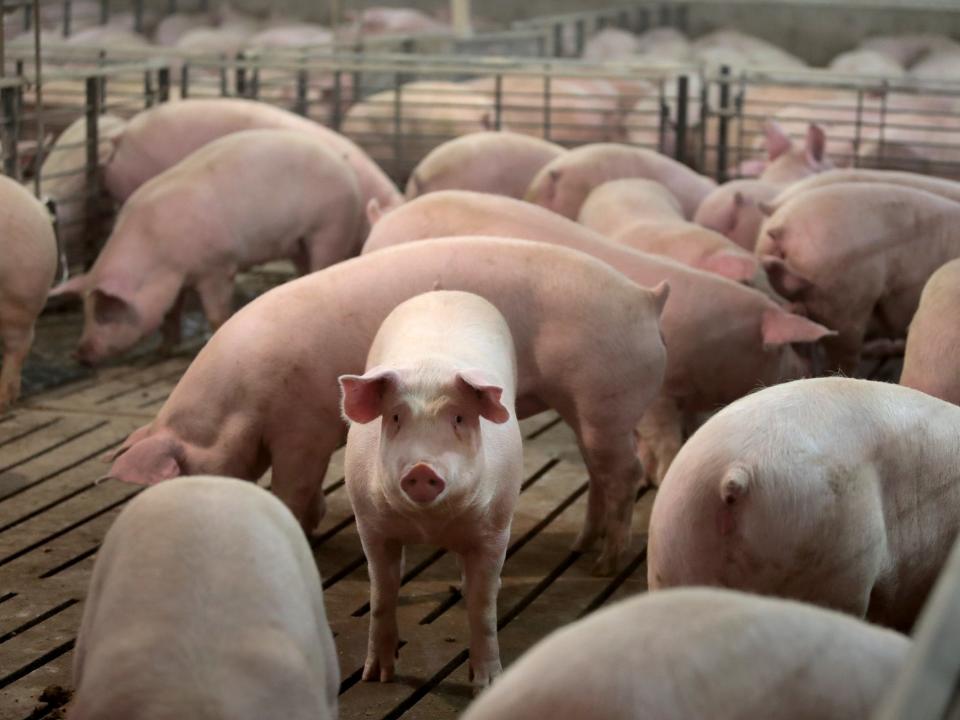An oversupply-led plunge in pork price has pushed the Chinese economy into deflation

China's economic woes continue to mount, as CPI figures released Wednesday showing 0.3% deflation.
Pork prices are a significant driver of the consumer price index, and have fallen 26% year-on-year.
Deflation could have wider economic consequences, such as lowering Chinese consumer demand.
Chinese pork prices have plummeted by more than a quarter as the world's second largest economy slipped into deflation for the first time in over two years.
Consumer price figures fell by 0.3% Wednesday, the first decline since 2021, with the government under considerable pressure to introduce much-needed support into the economy.
Pork is the largest driver of the country's Consumer Price Index basket, comprising approximately 3% of it, per the Economist Intelligence Unit. "A rough rule of thumb is therefore that a 10% increase in the pork price will push up the CPI by 0.3%," the EIU said in a research note.
Data from the National Bureau of Statistics showed that pork prices have fallen 26% in July year-on-year, and this has led to a decline in the wider index.
China is the world's largest producer and consumer of pork and it is widely reported that the government keeps a frozen reserve of the meat to ensure supply and price steadiness – though the exact amount is unclear.
The swing in pork prices over the past many years has thrown a huge challenge in front of China's hog farmers. An outbreak of African swine fever that started in 2018 brought China's hog production down by nearly 40%, according to a report published by S&P global ratings in 2021.
Oversupply is leading to deflation
A strict COVID-19 lockdown in China prompted a lack of supply of pork meat to the market as well as delay in this reaching the consumer.
Pork prices soared in October 2022 due to a tight supply market but the subsequent decline in prices since then is due to a number of factors including a recovery in African swine fever outbreak, a big backlog of pork meat from before as well as new pigs arriving in the market.
This oversupply and resulting decline in pork prices has weighed heavily on the country's consumer price index, pushing the country into the region of deflation.
Deflation is where the prices of goods and services decline – which may sound like good news for consumers' purchasing power, but falling prices pose a danger to the wider economy as individuals may postpone current purchases in the hopes of further reductions.
These figures add to the pile of worrying economic data for President Xi. Beijing must also contend with faltering growth, skyrocketing youth unemployment, and enormous amounts of debt.
Read the original article on Business Insider
